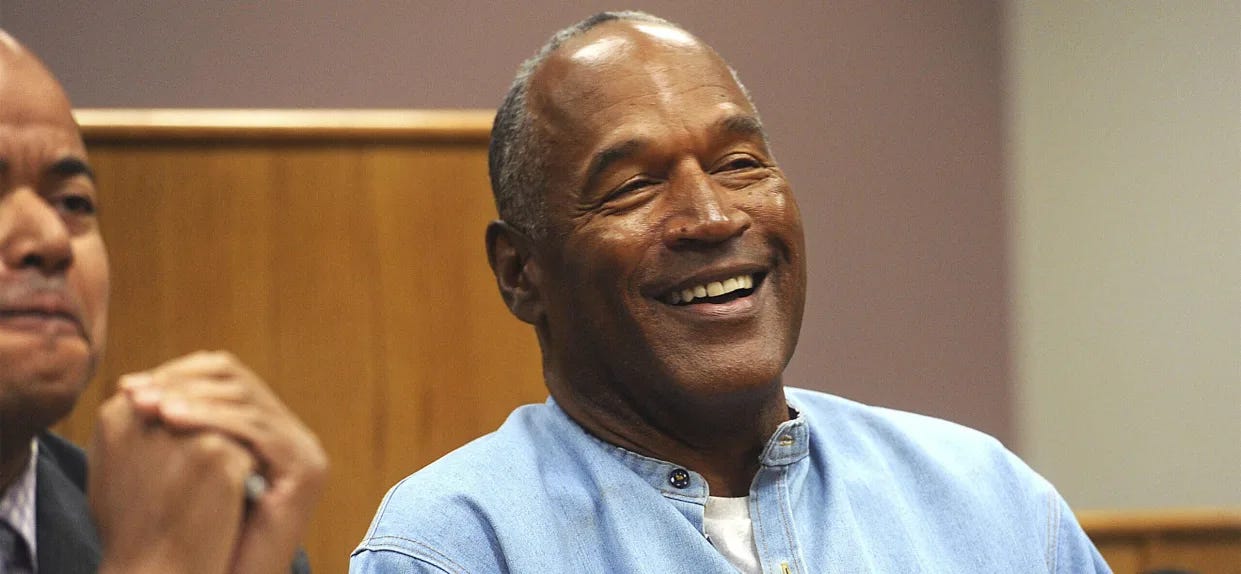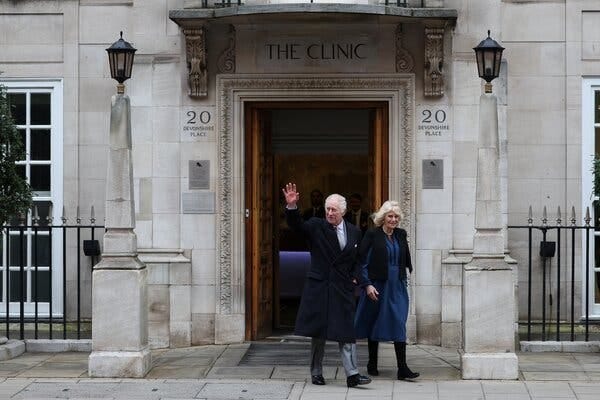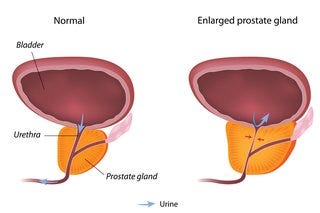This just in: King Charles diagnosed with a type of cancer after BPH. Not prostate cancer? But what is it?
Experts suggest some possibilities. Bladder cancer?
Check here for an AI One Act Play on King Charles & Secretary Austin:
"The Juice" diagnosed with prostate cancer--but how bad is it?
By Howard Wolinsky Famous men, infamous men, obscure men, rich/poor, black/white men, none of us is immune to prostate cancer, which the American Cancer Society estimates will be diagnosed in almost 300,000 American me n this year and will kill about 35,000.
By Howard Wolinsky
King Charles III, 75, of England has been diagnosed with “a type of cancer” following his benign prostatic hyperplasia (BHP) surgery last week. He has called off his public-facing duties and is undergoing unspecified treatment.
Buckingham Palace, at Charles’ urging, had been open about his BPH issue. But the Palace is being cagey about specifying what kind of cancer with which he has been diagnosed. The did say later that Charles didn’t have prostate cancer.
In a statement, the Palace said: "During The King’s recent hospital procedure for benign prostate enlargement, a separate issue of concern was noted. Subsequent diagnostic tests have identified a form of cancer."
What kind? We only know that it’s not prostate cancer. So King Charles will not become the poster boy for Active Surveillance.
Years ago, the odds were 30% that a man having undergone BPH would be diagnosed with prostate cancer, typically Gleason 6. But Dr. Brian Helfand, chief of urology at NorthShore University HealthSystem in suburban Chicago, said the odds for that thanks to PSA testing are in the single digits.
So if not prostate cancer, then what?
Helfand and Dr. Dean Elterman, of the University of Toronto, speculate it could be highly treatable bladder cancer.
(The landscape.)
Another possibility is some sort of metastatic cancer.
"His Majesty has today commenced a schedule of regular treatments, during which time he has been advised by doctors to postpone public-facing duties," the palace said today. "Throughout this period, His Majesty will continue to undertake State business and official paperwork as usual."
It said Charles "remains wholly positive about his treatment and looks forward to returning to full public duty as soon as possible."
Charles had been open about his BPH treatment, hoping to help others. Charles's decision resulted in a 1,000% increase in searches about prostate enlargement on the U.K.’s National Health Service website.
According to palace officials, Charles decided to disclose his diagnosis "to prevent speculation and in the hope it may assist public understanding for all those around the world who are affected by cancer." Yeah, but duh? If you’re not specific it fuels all kinds of speculation.
I have been re-watching “The Crown” on Netflix. His grandfather King George VI concealed his deadly lung cancer from the public. George, a heavy smoker, underwent a left total pneumonectomy in September 1951 for what was called "structural abnormalities" of his left lung, but what in reality was a carcinoma.
It’s striking how open King Charles has been.
(Real-life surgeons recreated the surgery on King Surgeo on the Netflix series.)
Only a month away. No excuses. What’re you waiting for? Sign up for ZERO support group on AS in March
By Howard Wolinsky
For the past three years, I have run a special Active Surveillance support group for ZERO. Last year, our virtual support meeting drew 60 patients to talk about AS. By far, it was the biggest session of any at the annual ZERO Summit.
Be there or be square: 11 a.m. Eastern on March 12, 2024.
Register in advance for this meeting:
https://us02web.zoom.us/meeting/register/tZUsfuqgrjIoG9AWf7voMhzT_UjdqbQQbQPA
ASPI webinar on how AI will decrease overdiagnosis and overtreatment of prostate cancer
AI, short for artificial intelligence, is in the headlines increasingly. Medical care is expected to receive the biggest benefits in the field, including prostate cancer.
Join Active Surveillance Patients International (ASPI) on Feb. 24 at noon-1:30 p.m. Eastern to hear a panel talk about AI and how it will be affecting our lives as prostate cancer patients in a program entitled “How AI will decrease overdiagnosis and overtreatment of prostate cancer.”
The panel includes:
—Niels Olson, MD, is a board-certified pathologist and the Chief Medical Officer at the Defense Innovation Unit in Mountain View, California. In this role, he oversees research programs in machine learning/AI for a broad spectrum of anatomic pathology applications, augmented reality microscopy, and artificial intelligence applications in radiology.
—Daniel Spratt, MD, Chair of radiation oncology at University Hospitals in Cleveland, who ordered Artera for Bruno. He says two-thirds of men making the transition to radiation can now avoid ADT and its serious side effects.
—Tim Showalter, MD, MPH, is the Chief Medical Officer at ArteraAI. He is a radiation oncologist and cancer researcher and a clinical professor at the University of Virginia. The Centers for Medicare and Medicaid Services recently set reimbursement rates for Artera AI.
—Bruno Barrey, a robotics engineer from suburban Detroit, was able to avoid Androgen Deprivation Therapy because of an analysis by Artera AI as he transitioned from Active Surveillance to radiation treatment.
—A representative (TBA) for Immunis, a Detroit area AI developer, that is working on a test to guide men in deciding whether to go on Active Surveillance.
Send questions in advance to: mailto:pros8canswers@gmail.com, or just cut and paste pro8canswers@gmail.com







Nancy, We'll have to rely on King Charles and Buckingham Palace to release specific information. You are not specific about your husband's situation. Is this surgery for BPH or prostate cancer? I'd suggest you and/or yourhusband attend a virtual support group from the AnCan Foundation orother group to address your concerns--and of course talk to his doctor. Best of luck. HW
Thanks, Steve.
Not necessary. But if you do, please include bronze cojones.
Howard